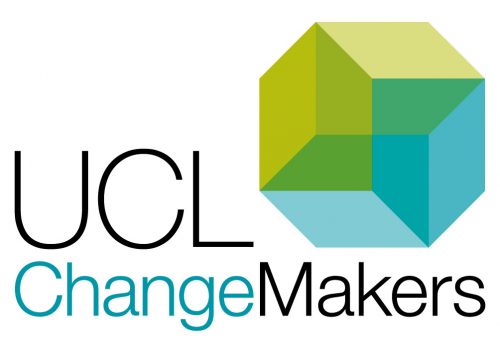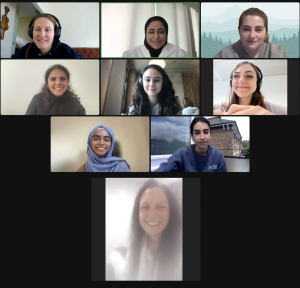THE TEAM
Student leads: Harriet Hunter, Navya Malik, Shannon McCann, Ritika Sukhani
Treasurer and staff project lead: Dominika Dykert
DEPARTMENT
Psychology and Language Sciences
WHAT HAPPENED?
Our project originally arose from neurodiverse students bringing up suggestions on how small practical changes within the classroom could have a large impact on improving inclusivity and the learning experience of neurodiverse students. The project aimed to explore the learning experience of neurodiverse UCL students and gain further suggestions on how other changes could be implemented within the classroom environment to accommodate all learners. The experiences of neurodiverse students were gathered through various means (focus groups, interviews, qualitative questionnaires) all answering the same questions focusing on their overall learning experiences and face-to-face classroom / online learning experiences. Through thematic analysis we narrowed down many similarities between students about difficulties they faced and suggestions of how their learning experiences could be improved. These themes highlighted the importance of: clear organisation within the course; the accessibility of course materials; support from staff and the physical classroom environment, which can have a large impact on the learning experience of neurodiverse students. These themes were then presented in our workshop with staff members at the Anna Freud Centre whereby we worked together to discuss solutions and identify which of our themes could be feasibly incorporated into the everyday classroom environment within the Anna Freud Centre. Although our project was small through the information gained from the staff and student partnership we will be creating and distributing a leaflet summarising our findings and the suggestions we wish to continue to incorporate within the Anna Freud Centre to make it an inclusive environment for neurodiverse students.
WHAT ADVICE OR ENCOURAGEMENT WOULD YOU GIVE TO SOMEONE THINKING OF DOING A CHANGEMAKERS PROJECT?
Sometimes things in your project may not go as planned. For us we experienced set-backs which had a domino effect on our recruitment and led to us changing the format of how we gathered information (We went from focus groups to using interviews/qualitative questionnaires). So, our advice is to be flexible on how to approach these problems and not get too shaken by them especially when you’re strapped for time. Also, your staff partners can be a life-saver to minimise these setbacks when they arise.

